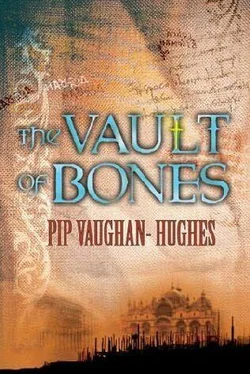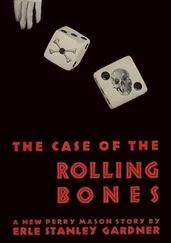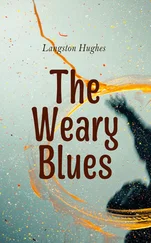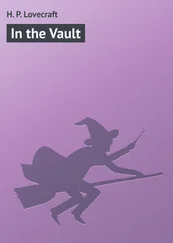Pip Vaughan-Hughes - The Vault of bones
Здесь есть возможность читать онлайн «Pip Vaughan-Hughes - The Vault of bones» весь текст электронной книги совершенно бесплатно (целиком полную версию без сокращений). В некоторых случаях можно слушать аудио, скачать через торрент в формате fb2 и присутствует краткое содержание. Жанр: Исторический детектив, на английском языке. Описание произведения, (предисловие) а так же отзывы посетителей доступны на портале библиотеки ЛибКат.
- Название:The Vault of bones
- Автор:
- Жанр:
- Год:неизвестен
- ISBN:нет данных
- Рейтинг книги:4 / 5. Голосов: 1
-
Избранное:Добавить в избранное
- Отзывы:
-
Ваша оценка:
- 80
- 1
- 2
- 3
- 4
- 5
The Vault of bones: краткое содержание, описание и аннотация
Предлагаем к чтению аннотацию, описание, краткое содержание или предисловие (зависит от того, что написал сам автор книги «The Vault of bones»). Если вы не нашли необходимую информацию о книге — напишите в комментариях, мы постараемся отыскать её.
The Vault of bones — читать онлайн бесплатно полную книгу (весь текст) целиком
Ниже представлен текст книги, разбитый по страницам. Система сохранения места последней прочитанной страницы, позволяет с удобством читать онлайн бесплатно книгу «The Vault of bones», без необходимости каждый раз заново искать на чём Вы остановились. Поставьте закладку, и сможете в любой момент перейти на страницу, на которой закончили чтение.
Интервал:
Закладка:
'He would put a price on…' spluttered the Regent, incredulously.
'Oh for Christ's sake, Anseau’ barked de Toucy impatiently. 'This is no time for your piety. Yes, dear men’ he said, turning to us. 'The gift is freely given, if we have your guarantee of the immensity of Louis' gratitude. Now enough talk. I am sure our guests would like to see what they have come so far to… what did you say? Facilitate? Hughues, the key to the Chapel of Pharos, if you please.'
The chamberlain disappeared into the outer room, and returned momentarily with a great iron hoop upon which dangled a small silver key. The effect was comical, but then, I reflected, here in miniature was the predicament of Constantinople: the delicacy of one race skewered upon the hard brutality of another. We followed the Franks – so I now thought of all these folk, forgetting yet not forgetting that I was one of them, for if I was their brother by what was writ in our blood, in my soul I was utterly different – out through the makeshift throne room and into the dead belly of the palace beyond. The two barons seemed almost as lost as the Captain and I, but Hughues strode confidently ahead. We passed the wrecked chamber with the walls of purple stone and plunged down a wide flight of stairs, then another and another. The palace seemed to be built in tiers that spilled down the hillside towards the sea, and as we descended, so the structure became damper and more decayed. Finally Hughues put his shoulder to a fine wrought-iron gate which shrieked open and painted his white robe with rust. I smelled burning, and in another pace we rounded a corner and entered a high domed chamber. Four guards in imperial livery crouched, playing dice, under a guttering lantern which, although it was broad daylight outside, was the only light in that place. We might have been deep beneath the earth for all I could tell. The guards sprang up and the chamberlain seemed to be about to launch some harangue, but de Cayeux put them at their ease with a lordly wave. Hughues stooped to fit the little silver key into a plain door set into a narrow, round-topped arch. The lock snicked neatly, and the door swung inward on silent hinges. The three Franks crossed themselves and prayed silently, eyes screwed shut. The Captain and I hurriedly imitated them. I looked beyond the door, but there was nothing but a velvety darkness.
The air was thick and stale, but the clear scent of frankincense cut through like a trickle of icy water. One of the guards had lit a taper for the chamberlain, and now he held it before him and stepped over the threshold. Anseau de Cayeux followed, head bowed reverently. The Captain and I hung back politely, but Narjot de Toucy stepped behind us, and we had no choice but to go on into that dead air.
Hughues was touching his flame to racks of candles that stood on either side of the door. Light sprang up, dim at first but growing like a bashful sunrise until the walls, the ceiling, the floor itself began to glow and to throw back the rich candlelight with the gleam of gold. For there was gold everywhere, save on the floor, which was all of dazzling white marble. At first I thought the walls were hammered sheets of the stuff, but as my eyes became accustomed to the light I saw that I beheld mosaics. Every inch of wall and of the columns that held up the domed roof was inlaid with tiny squares that my intelligence told me were glass but that my soul – for if ever a place called out to my soul, it was this chapel – saw as rubies, emeralds, precious metals, garnets. The walls were lined with portraits of standing figures, scores of them, all of them stern. Bearded prophets regarded us, shoulder to shoulder with warriors clad in ancient armour, angels wrapped in their wings or in fire, queens with towering crowns, hollow-cheeked saints. I gasped, and backed into the Captain, who steadied me with a hand. Looking up, I saw that the little cupola in the ceiling bore the likeness of Our Lord, bearded, his face blankly serene, holding out his pierced hands. Either the air in that musty chamber had affected me, or the man who had made this image, far back in some unimaginably deep corner of time, had been possessed by some rare genius, for this Christ appeared, as I stared, to grow as vast as the sky, his arms stretching to embrace the horizon. I gasped.
'Rather extraordinary, isn't it?' said de Toucy blandly. 'Look at all that. The Greeks… profligates, every one.'
At that moment I realised that this tiny chapel, with its encrustations of wealth and elaboration going back through long centuries to its birth at the hands of a Roman emperor, was a last clue to the tortured husk of the palace in which it lay. It must all have been like this once, I thought. Those halls would have been magnificent beyond imagining. The throne room… I shook my head. It had been stripped, like crows and foxes strip a dead sheep. The big beasts had torn off the meat, and the little ones, the ants and maggots, had picked the bones until they gleamed. I remembered the words I had read in the history of the Sieur de Villehardouin: 'the lordly Palace of Bucoleon, a more magnificent building than had ever been seen before.' To my Anna, whose tales of this place came from folk who had known it well, it had been a wonder of the world. And in half a lifetime it had come to this. If raw stone had value, there would be nothing here at all. I wondered if the jolly Regent had already mortgaged it off to the lime-burners. I thought of the city outside. What legion of wonders had been sold off or wantonly destroyed? What glory had passed from the earth, never again to be seen by men's eyes? The air was growing heavy with the scent of beeswax, and my eyes wandered around the figures watching us from the walls, gazing at us through the windows of the past. The chapel itself seemed to be humming, as if we were inside a bell that had been struck a long, long time ago, but in whose metal the memory of the blow still resonated, a ghost of sound.
The chamberlain and the barons were picking their way through the columns towards a golden structure that loomed at the back of the room. I glanced at the Captain. He was watching them too, his eyes narrowed. I shook off my fancies. We were here on business. And without a doubt, every man who had set foot in here in the past thirty-four years had been on business too, like those three men now making a perfunctory genuflection before the altar.
'Here we are’ I muttered to the Captain, just to break the silence. And there, presumably, it is’ the Captain replied. Well, the hound sees the hare. Shall we go on?' 'View halloo’ I said faintly. 'That's the spirit’ said the Captain.
We walked forward, our feet clicking on the time-rounded marble tiles. In the Greek fashion, what I would have called a rood-screen – and doubtless Anna would have put me briskly to rights – formed a complete wall before the altar, pierced by three doors. This wall was populated by a host, nay, a regiment, of painted saints that thronged in tiers, row upon row. Here and there the panoply of age-darkened figures was interrupted by a patch of bare wood, where an icon had been pried out none too tenderly. But the Franks had gone through the central door into the well of darkness beyond, ignoring the paintings. A light flared, and first one candle, then a cluster of them began to flicker upon the altar. We passed through the narrow door in our turn, and stepped into a smaller space. It was a semicircle, and there were three small windows in the back wall, although two had been crudely bricked up and the third shuttered with a piece of slate behind an iron grille so that it admitted nothing but the most minute thread of daylight. There was no mosaic here. The plaster walls were painted black, purple, deep red, with here and there a gold line or band. But behind the altar the wall had been gilded, and from the floor to the apex of the ceiling rose a cross.
Читать дальшеИнтервал:
Закладка:
Похожие книги на «The Vault of bones»
Представляем Вашему вниманию похожие книги на «The Vault of bones» списком для выбора. Мы отобрали схожую по названию и смыслу литературу в надежде предоставить читателям больше вариантов отыскать новые, интересные, ещё непрочитанные произведения.
Обсуждение, отзывы о книге «The Vault of bones» и просто собственные мнения читателей. Оставьте ваши комментарии, напишите, что Вы думаете о произведении, его смысле или главных героях. Укажите что конкретно понравилось, а что нет, и почему Вы так считаете.









